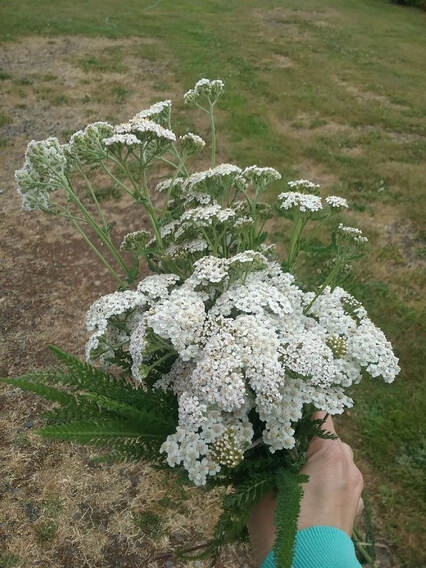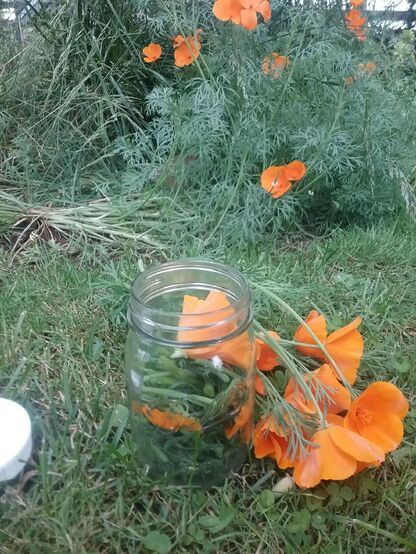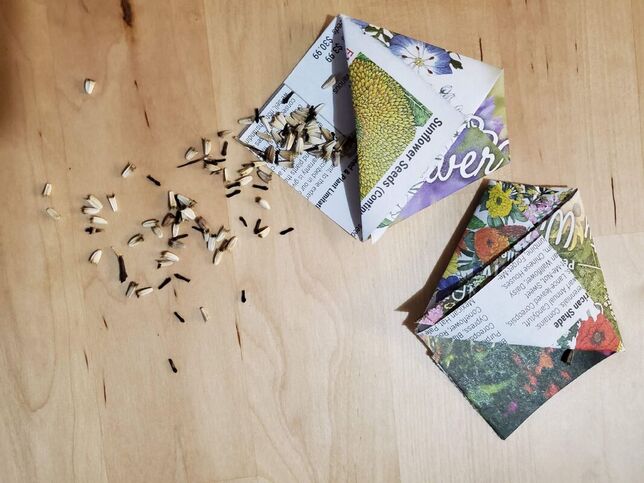How to Use Herbs During a Pandemic
- There is so much information flying about right now about what herbs to use, how to use them, which herbs NOT to use, cytokine storms (what?!) and so much more. We don’t want to add to the noise, but we did want to share what we’ve gathered these past couple of weeks and also what our plans are for weathering these next few months and what herbs we plan to rely on. There are also some resources below that we really enjoy and trust, including some free classes and reading – perfect for some quieter time and to add to your herbal knowledge through home study.
What herbs we’ll be using
With all the information being tossed out in the news, on social media and even from friends and family, it can be difficult to parse out just what you should be doing. It can feel like you’re not prepared, you don’t know enough, and why, oh why didn’t you start or expand your herb garden last year?!
Here are some of the steps and herbs we think are important to take control of your own health during a time such as the pandemic we are experiencing now:
1. Inventory your herbs – know what you’ve got and how much; now is not the time to panic buy herbs of all kinds that may be useful. There is still so much we don’t know about this virus, and as a living entity, it can change, morph and evolve into something new and different. Its best to know what you currently have access to in your herbal pantry. If you don’t know – you can’t use it. Which leads us to the next step.
- Got yarrow? Make a tea for when you have a fever – it is both cooling and warming – helping to get the blood flowing and inducing sweating. Many recommendations are coming out for this current virus to avoid NSAIDs like ibuprofen, a frequent go to medicine for fever. Yarrow is easy to grow and proflic – it is a common “weed” in the lawn at the farm – ha! While we haven’t used yarrow for fevers because we’ve been lucky to avoid high fevers, and we typically let most fevers run their course since they are beneficial to the healing process for the body – we definitely have some on hand to make tea for this virus should it strike. Sadly, this plant can be problematic for people who have allergies to plants in the Aster family (think daises, sunflowers, asters, and such). Read on for another herb that could be a good alternative.
- Catnip – a cooling herb that also promotes relaxation. Erin has used both the tea and tincture for years to help ease stress, anxiety and promote better sleep. A friend has also used this for many years with her children for fevers. Again, we’ve been lucky to avoid high fevers with the kiddo, but this is another herb we are looking to should a high fever show up. So – not just for cats!
- Sage, thyme & rosemary – we’ll be putting these into an herbal steam. Dried or fresh works and we love herbal steams for stuffy and congested nose, sinus and lungs. Sage and thyme make a great tea to drink for these same things. And - all three of these can also be infused into alcohol as a cleaner for disinfecting surfaces. Thyme and sage can also be infused in honey to make useful cough syrups. Check your spice cupboard for these beneficial herbs!
- Onions – in our family for both the youngest and oldest members, any little sniffle and bit of mucus seems to go straight to their lungs, leading to long lasting and lingering coughs. We’ve employed onion poultices for many, many years. Often at the first tickle and cough, to help shorten the duration and severity of the illness. The quiet rest that an onion poultice requires probably doesn’t hurt either.
- Garlic – another strongly aromatic “herb”, garlic gets infused in honey to be taken throughout the day in teas or straight for coughs and congestion. It also gets infused into oil, and then that oil is put on the kiddo’s feet right before bed. This seems to help quiet the cough during the night, and make the wake up in the morning a little less filled with harsh coughs as well. We’ve got some garlic infuse olive oil stashed in the fridge for just this use.
- There are a few others we’re keeping in our back pockets in case needed, including: anise hyssop, beebalm, German chamomile, plantain, marshmallow and horehound.
5. Don’t panic - Don’t have a specific herb recommended by an herbalist online? Don’t worry – go back to step #2 above and use what you have. Many of the herbs you likely already have can be useful – plantain, yarrow, catnip, German chamomile and many others. Now is not the time to panic buy all the herbs that you don’t have – in fact you might not be able to do so. Many of the trusted herbal sources are not taking orders right now because they have been overwhelmed in the past few weeks and many are out of the herbs that are being commonly written about online.
6. Let spring unfold – it can be hard during this time of uncertainty to let things unfold naturally, but this is actually a really great time to start ramping up your herbal pantry. Look around you for the spring herbal allies and plant friends that you’ve noticed in the past, but not done anything with. Chickweed, cleavers, and dandelion abound right now. Pesto from chickweed and dandelion greens can aid in getting the blood moving and digestion going from a winter of heavy foods. Now is a great time to make a tincture of cleavers to help move stagnant lymph nodes in the future (Erin loves cleavers tincture for swollen, hot and hard lymph nodes – especially the one right in the middle of the underside of the chin, which frequently comes up with throat, mouth and lip issues for her). Wilt some chickweed for a few hours in the spring sunshine, and then infuse it into olive oil for the skin – it captures that fresh, cool spring air in its leaves, which can be so soothing to hot skin conditions common in the summer such as bug bites, sunburn and general skin burns. You can leave it as an oil or make it into a simple salve, then keep it next to your kitchen sink for burns from all the homemade cooking you are doing now. ;)
Here are the herbs we are adding to the garden this year that we hope will be useful in the future: elecampane, mullein, wild bergamot, California poppy (if we can get the dogs to stop stomping all over it!), astragulus and we’re sure some others we haven’t thought of yet!
We found these resources very helpful in the past few weeks, making us feel like we had what we needed in our herbal apothecary and kitchen cupboards to support ourselves and our families during this specific illness, along with any future flu and cold illnesses. It also provided a bit of inspiration for research and study into new herbs, some of which we are adding to the herb gardens this year!
Elderberry – lots has been passed around the internet about elderberry and whether it is appropriate for this particular virus due to the potential for cytokine storms. We fully admit that we didn’t even know what these were until the info started coming out. (But Erin’s husband was familiar with them - as a community college biology teacher and general science nerd – he knew all about them as part of his curriculum on the immune system – guess we should include him in our herb conversations more often – ha!). There is so much information, so we thought we would share a couple of key resources we used to make a decision about whether we would use elderberry: https://www.herbalremediesadvice.org/elderberry-side-effects.html
General immunity - Great overall info on how to help support your immune system throughout the year, and be prepared for any illness: https://www.herbalremediesadvice.org/herbs-for-immunity.html
Coughs – some information is indicating that along with a high fever, this virus also carries with it a cough. Here is some really great info on coughs, including looking at the specific type of cough you have and how best to treat that: https://www.herbalremediesadvice.org/home-remedies-for-cough.html
Healthy Immune system: Coronavirus help – from Susun Weed – a FREE course that can be completed online in less than ~30 min, this series of short videos features Susun providing great insight and ideas. What we really liked about this one was the straight forward and simple ideas provided: https://www.wisewomanschool.com/p/healthy-immune-system




